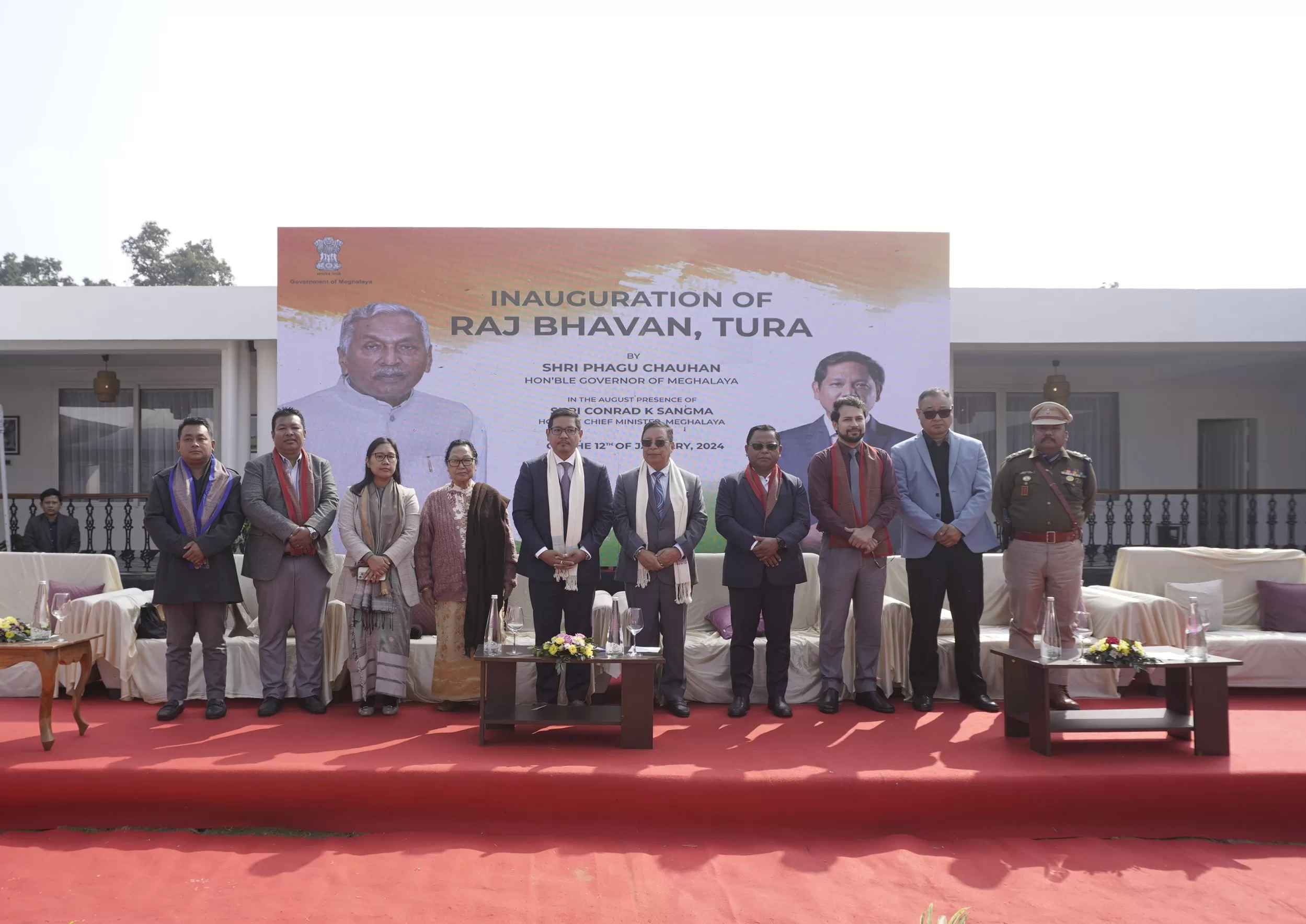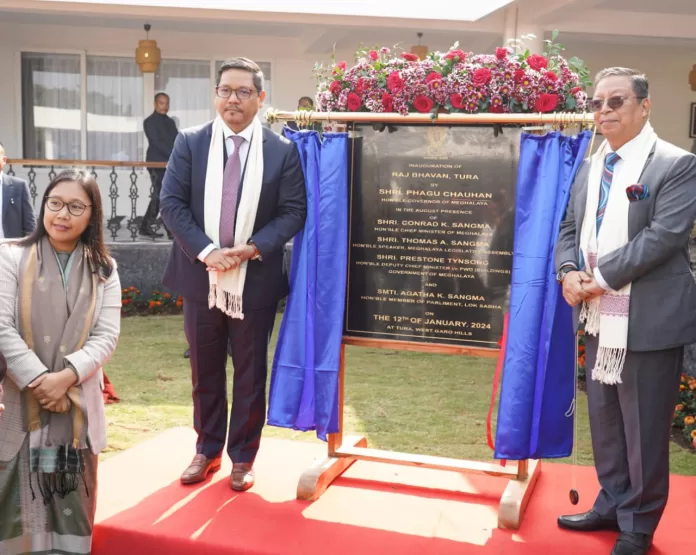Tura witnessed a momentous occasion with the inauguration of Raj Bhawan, a long-anticipated project that has now become a symbol of progress in the Garo Hills region. His Excellency Hon’ble Governor Shri Phagu Chauhan remotely inaugurated the building, while the Hon’ble Chief Minister, Shri Conrad K Sangma, and other dignitaries physically toured the impressive campus, including Shri Thomas A Sangma, Hon’ble Speaker of the Meghalaya Legislative Assembly, Smti Agatha K Sangma, Hon’ble Member of Parliament, Tura, Chief Secretary Shri D. P. Wahlang, Commissioner of Division Dr. Vijay Kumar D, and Deputy Commissioner Shri Jagdish Chelani.
Located in the picturesque Danakgre area of Tura town, the Raj Bhawan, built at a cost of Rs.24.1 crores across 28.45 acres, stands as a testament to the government’s commitment to decentralized administration beyond the capital.
Expressing his delight, the Hon’ble Governor hailed the project as a beautiful complex and a milestone towards enhancing governance in the Garo Hills region. Chief Minister Shri Conrad Sangma emphasized the significance of completing this project, describing the Raj Bhavan as a symbol of architectural excellence and civic pride, poised to shape the city’s promising future. He also announced that the complex would host Smt Draupadi Murmu, Hon’ble President of India, during her upcoming visit.
Originally envisioned as an “Assam type” building in 2009 with a budget of Rs. 5.48 crores, the project underwent several transformations, including a shift to an earthquake-resistant RCC structure with the addition of a spacious banquet hall. Unforeseen circumstances in 2016 led to delays, but the project was revived in 2021 by Hon’ble Chief Minister Shri Conrad K Sangma. Two additional works orders, totaling Rs.10.98 crores and Rs.7.69 crores, expanded the scope of the project. Under constant monitoring, the project was successfully completed within a span of three years.


In a visionary move, the government plans to establish over 700 CM Citizen Service Delivery centers across the state, serving as comprehensive service hubs for citizens. These initiatives, coupled with the development of new administrative infrastructure, signal a transformative leap towards enhanced service delivery and governance in the state.














